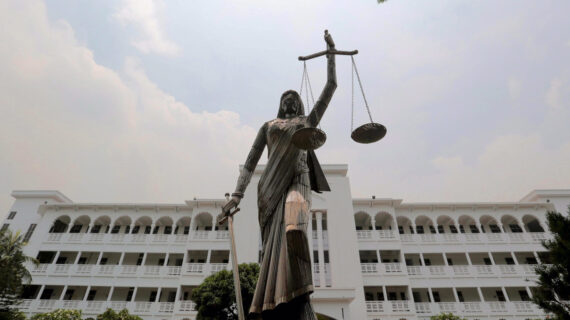- The Donner Book Prize will be announced on May 18 in Toronto.
- Former Bank of Canada governor Stephen Poloz likely tops the list in terms of name recognition, but the other four nominees can make the case that their books are extremely relevant right now.
- The shortlisted books were published in 2022 and the winner receives a $60,000 prize, while the other nominees each receive $7,500.
As Canadians continue to watch prices rise at the checkout, even as inflation shows some early signs of cooling, it’s fitting that a former Bank of Canada governor is on the shortlist of authors for the Donner Book Prize for public policy writing.
And in a surefire sign of the times, with his book on the coming “age of uncertainty” in the economy, Stephen Poloz is the second former Bank governor in two years to make the Donner shortlist. Last year, Mark Carney made the shortlist for his book on value and values.
The prize will be announced on May 18 in Toronto and the winner will receive a $60,000 grand prize.
Poloz likely tops the list in terms of name recognition, but the other four nominees can make the case that their books are just as relevant right now.
The other nominees are Joseph Heath, for his book on tackling tough societal problems; John Lorinc, for his book on smart cities; Ryan Manucha, for his book on interprovincial trade; and Kent Roach, for his book on the state of policing in Canada. Last year’s winner was Dan Breznitz, for Innovation in Real Places, which argued that Canada needs innovation-based growth that doesn’t just rely on the high-tech industry.
Poloz argues in his book that Canadian policymakers shouldn’t let ideas that have been conventionally described as a “political impossibility” be suppressed from the political discourse, citing the reform of Canada’s system of supply management for dairy products as an example.
“This political impossibility arises essentially because those who perceive that they would lose as a result of the change have their voices magnified by news media and social media and create serious political fallout for the government,” writes Poloz, in The Next Age of Uncertainty: How the World Can Adapt to a Riskier Future.
In a recent interview on the Hub Dialogues podcast, Heath said that an idealized view of justice can sometimes clash with public policy, a key concept in his book Cooperation & Social Justice.
“People are motivated by moral commitments, but they’re also motivated by their self-interest in a really complex way that’s actually really hard to understand and to model. It means that we can’t just prescribe moral solutions to social problems and expect everyone to fall in line,” said Heath.
Lorinc made a similar point in a discussion on Hub Dialogues, arguing that our utopian idea of what “smart cities” can do actually gets in the way of real progress.
One of the things I wanted to do with the book was really explain what we’re talking about when we’re talking about smart city technology,” said Lorinc.
“In a lot of cases, these are very specific applications. They don’t have anything to do with personal data. They’re about traffic light control and that kind of thing,” said Lorinc.

A recurring theme in the books is that Canadians would benefit from getting more involved in public policy and our democratic institutions in general. In his book on policing, Roach makes the case that Canadians might have to get more involved in local policing if we want to have effective oversight.
“Perhaps the time has come to follow the recent English practice of having local voters elect police and crime commissioners who can devote all of their energies to such matters,” writes Roach.
“Committees of local council may also be in a better position than police boards to make decisions about how the police should work with other public agencies responsible for health, family services, housing, and education,” the book reads.
And although interprovincial trade has been an ongoing issue in Canada since Confederation, Manucha argued in his book that we could be at a favourable moment to look into reforms and freer trade among the provinces.
“If we look into the history of Canada, this is an opportunity for us. Where you see global isolationism in ascendancy, the U.S. is pulling back, to think about our domestic markets as an avenue for untapped growth that we have complete control over, where we’re not subject to the whims of a foreign power,” said Manucha, during a discussion on Hub Dialogues.
“And we all march behind the same flag in the Olympics and fight with the same uniform in times of war. Maybe there’s something to be said about what our citizenship should mean about unlocking that source of growth,” said Manucha.
The shortlisted books were published in 2022 and the winner receives a $60,000 prize, while the other nominees each receive $7,500.
The Donner Canadian Foundation was established in 1950 by businessman and philanthropist William H. Donner, as means of “encouraging private initiative, independence, and individual responsibility” in Canada, contributing more than $150 million to more than 2,500 projects across the country.




